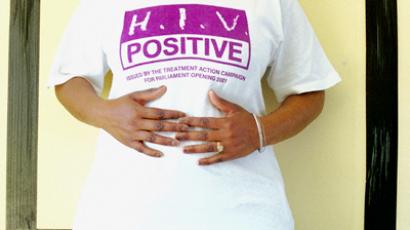Big bills, short lives: Costly healthcare can’t keep mortality rates down

While the US spends more on healthcare than any other developed nation, it also has one of the lowest life expectancies: People living in the US die sooner, get sicker and sustain more injuries than those in other high-income countries.
Compared to 16 other affluent nations, the US has the highest mortality rate, according to a new report titled “US Health in International Perspectives: Shorter Lives, Poorer Health.” The US death rate is more than 500 people per 100,000, which includes deaths from noncommunicable diseases, deaths from injuries and deaths from communicable, maternal, perinatal and nutritional conditions.“The health of Americans is far worse than those of people in other countries, despite the fact that we spend more [on health care],” Dr. Steven Woolf, a professor of family medicine and chair of the panel that wrote the report, said at a news conference Wednesday. Each year, the US spends an average $8,233 on healthcare per person, which is more than twice as much spent by other developed countries such as France, Sweden and the United Kingdom. About 17.6 percent of the US GDP is spent on healthcare, even though there are fewer physicians and hospital beds per person than in most other developed countries.US life expectancy has been decreasing since 2010, and Americans are now only expected to live an average of 79.8 years. Even the wealthiest of Americans who can afford good insurance don’t fare as well as those in other countries.“Even Americans who are white, insured, have college education or high income or [are] engaged in healthy behaviors seem to be in poorer health than people with similar characteristics in other nations,” Woolf said.Gun violence is one of the main contributing factors of the lower life expectancy. Six out of every 100,000 US residents die in a violent encounter.“The fact that our risk of death from homicide is seven times higher and from shootings 20 times higher is pretty dramatic,” Woolf added.Researchers who worked on the report believe healthcare isn’t the only factor to blame: American culture also plays a significant role in the falling life expectancy and rising mortality rates. The common practice of keeping firearms in American homes – often unlocked – contributes to gun violence, while unhealthy eating habits, high rates of drug use and inadequate physical activity are sure to trigger health complications that may not be easily treatable.“We have a culture in our country that, among many Americans, cherishes personal autonomy and wants to limit intrusion of government and other entities on our personal lives and also wants to encourage free enterprise and the success of business and industry,” Woolf says. “Some of those forces may act against the ability to achieve optimal health outcomes.”The National Academy of Science also estimates that 30 percent of US health expenditures are wasted, often on expensive and unwarranted procedures. Fraud, excessive administration expenses and wasteful procedures increase the amount of money Americans spend on their health, while not reaping any benefits to the patients. With an overpriced and inefficient healthcare system, as well as cultural habits that are damaging to health, US life expectancy continues to decline and lag father behind other high-income countries.“If we fail to act, life spans will continue to shorten and children will face shorter lives and greater rates of illness than those in other nations,” Woolf says.














